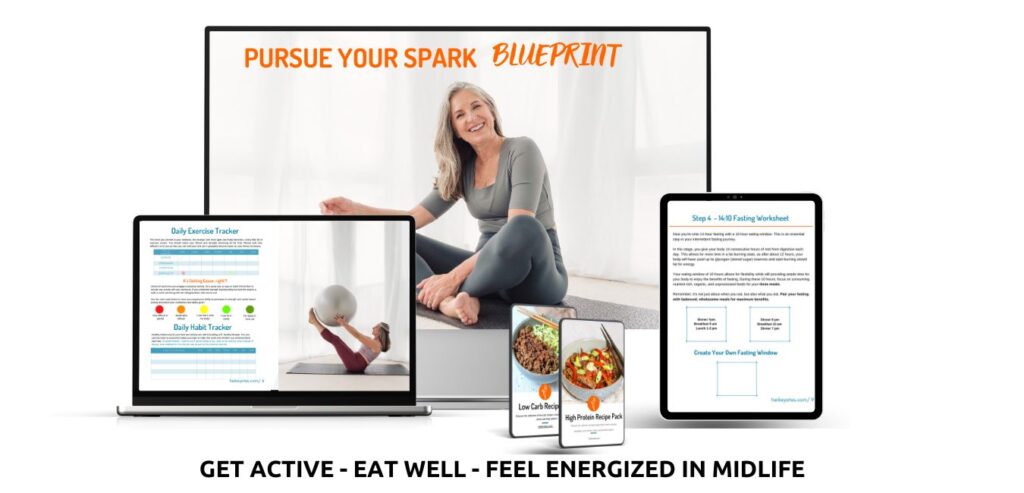It can be difficult in our society of diets and quick fixes to break the cycle and focus on health, habits, and intuition. We are bombarded with outside messages ranging from peer pressure to media. Have you heard of Intuitive Eating? It may be something that you are already doing but don’t even know that you are. You might enjoy learning how Intuitive Eating can improve your healthy habits instantly.
What is Intuitive Eating?

It’s not a food or diet plan but a self-discovery of eating mindfully and without guilt. You don’t count calories, macros, or points, and there are no food restrictions; instead, you rely on internal hunger and satiety cues.
Everyone knows that diets or food restrictions backfire and that we gain weight back over time, but we still keep hoping for those diets to help us establish a healthy and sustainable weight.
After years of dieting and deprivation, you finally can break free of this unhealthy cycle with Intuitive eating and permit yourself to eat what you want. As the authors describe, this method embraces the mind-body connection and guides you back to your instinct. But is it that easy to break free of years of overeating, eating the wrong things for the wrong reasons? The authors believe so.
The term Intuitive Eating was coined by Evelyn Tribole, RD, and Elyse Resch, RDN, in the 1990s; since then, they’ve written several books and participated in numerous research studies on their method. Their most recent publication, The Intuitive Eating Workbook, was published last year.
The 10 core principles are guidelines to help establish a healthy relationship with food, mind, and body. The authors based their principles on existing research and experience with their clients. Scientists are validating their work through studies and that Intuitive Eating is not only a healthy way to live but may effectively treat binge eating.
How Intuitive Eating Can Improve Your Healthy Habits Instantly
The 10 Core Principles Of Intuitive Eating
1. Reject the diet mentality
Stop dieting and reject the quick fixes that promise lasting results. Get rid of diet books and plans that promise fast weight loss or dictate to eat only certain foods and not others.

2. Honor your hunger
Instead of counting calories or even watching portions, pay attention to your body’s hunger cues. Once you learn to read the signs, your body is it’s much easier to repair an unhealthy relationship with food
3. Make peace with food
This principle of intuitive eating gives you “unconditional permission to eat.” Once you no longer feel that certain food groups are forbidden, they become less tempting. You may have been told not to eat bagels because they are high in carbs. Once you make peace with food, you might forgo the bagel as you don’t need it and want it after all.
4. Challenge the food police
Chase away those thoughts and people who tell you there is inadequate food or good food and it’s terrible to eat, for instance, desserts. Making you feel guilty if you don’t follow those rules correctly.
5. Respect your fullness
This point goes hand-in-hand with principle #2. Stopping in the middle of the meal and assessing our hunger cues instead of eating without stopping may result in finding out that you are because you are bored or stressed. Resulting in overeating.
6. Discover the satisfaction factor
It is about bringing awareness back to your meals and how the food tastes, smells, and texture without the distraction of watching TV, for instance. Paying attention to what you eat and being in the moment.

7. Honor your feelings without using food
When we overeat, it could just be that we are super stressed and don’t know how else to reduce that stress level but eat. Being more mindful in all aspects of life can help stop turning food into the solution.
8. Respect your body
Accept our body no matter what size, and it’s not about looking like the model you saw on Instagram in her tight jeans. Intuitive eating is not a weight loss plan but may help change an unhealthy diet history.
9. Exercise: Feel the difference
It is crucial to include activities that are sustainable and that you enjoy while practicing intuitive eating. Exercise has many benefits, and it’s not always about what burns the most calories.
10. Honor your health with gentle nutrition
The authors suggest “to eat what you want,” but that doesn’t mean neglecting healthy and nutritious meals. They encourage healthy eating by adding more fruits and vegetables rather than ice cream. Don’t beat yourself up if your choices are less than perfect.
Is Intuitive Eating Ideal For Weight Loss?
Intuitive eating is for women of any size. When you begin the intuitive eating journey, three things can happen to your body. You might gain weight, you might lose weight, or your weight will stay the same. Intuitive eating, over time, supports your body in finding its natural set point.
What Is A Weight Set Point?
It’s the weight your body naturally maintains and returns to after a period of restrictive or overeating. Your weight set point is influenced by genetics and biological tendencies but can be changed by activity and behavior.
Many people have experienced the frustration of watching the numbers on the scale go down only to creep back up over time. Your body’s natural tendency is to defend a weight that feels biologically comfortable, making weight change tough for many.
Where Do We Go From Here?

It’s important to remember that weight loss is not the goal of Intuitive Eating. Health is the goal. When health is the goal, we focus on behaviors and habits rather than numbers.
Intuitive eating can be a great start, but I believe that a balanced approach infusing education about healthy food, portion sizes, and meal timing is necessary to help clients be successful in the long run.
What do you think about Intuitive Eating? Is this something you want to try?

Pingback: Answers To The Most Asked Questions In 2019
Pingback: 5 Ways To Recession-Proof Your Health And Feel Healthier
Pingback: New Year's Resolutions